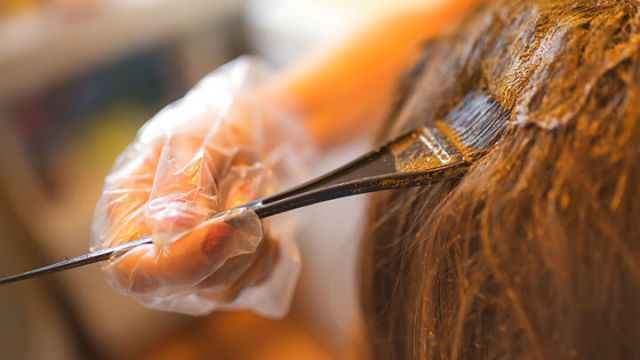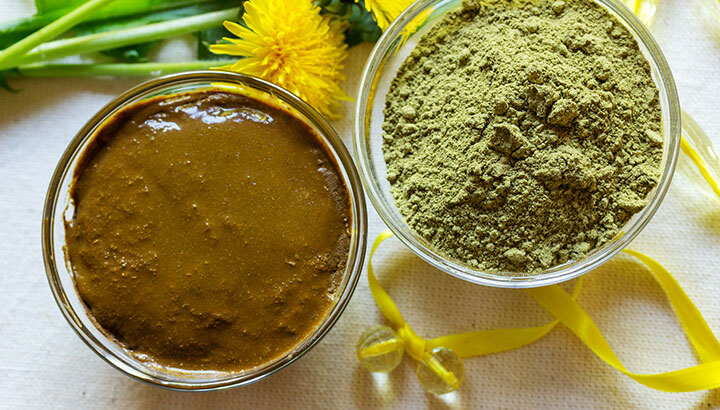
When you hear the word “henna,” what is the first thing that comes to your mind? Is it the elaborate, beautiful temporary tattoo work created with this pigment? Maybe it’s henna’s widespread use as a natural hair dye? While henna does work as a great temporary tattoo ink, and works well to dye hair, it can also do so much more.
The henna plant is scientifically called Lawonia inermis. It is a rather large shrub that grows to about twenty feet tall. This shrub blooms into small pink or white flowers, which give way to small fruits. Henna shrubs are grown in large numbers in India, as well as throughout parts of the Middle East and Africa. The use of henna is common in Ayurvedic medicine, as well as in other traditional practices.
The bark, seeds, leaves and oil of the plant have been used for numerous health applications for centuries, thanks to the antiviral and antibacterial properties of henna. It is usually made into a powder or paste before use. In India, henna is commonly referred to as Mehandi.
Henna as a hair dye
There is a reason that henna is most known as a hair dye — it is great for this purpose. When dying hair, henna is often combined with olive oil and other plants. Some examples include black tea and hibiscus flowers. It may take some practice to dye your hair with henna at home, but once you get the hang of it, it will be second nature.
The following are 12 other fantastic uses for henna:
1. Strengthen and condition hair
Using henna on your hair helps to strengthen your strands and repair any damage. It also helps to balance your hair’s pH, which is essential for healthy locks. Steeping henna leaves in water and then applying it to your hair and scalp makes a great restorative treatment.
Henna also makes a great conditioner. Combining equal parts henna, lemon juice, yogurt and green tea makes a fantastic conditioning treatment to restore moisture and shine to your hair.
2. Encourage hair growth
When used regularly, henna may help your hair to grow longer and stronger. Combining henna and gingili oil (a.k.a. sesame oil) is one recommended remedy for this purpose.
3. Get rid of dandruff

Combining soaked fenugreek seeds, mustard oil and henna leaves to make a paste makes a great scalp treatment to help rid you of pesky dandruff.
4. Combat inflammation of muscles and joints
Henna has anti-inflammatory properties. When you apply a henna oil to sore muscles and joints, it may help to reduce pain and increase your range of motion.
5. Alleviate a headache
Since henna is an anti-inflammatory, it may help to ease the pain of a headache or migraine. Rubbing a bit of henna juice on your temples and other pressure points may bring relief, especially if you’re experiencing a tension headache.
6. Help heal minor wounds
The antibacterial and antiviral properties of henna may be very useful for healing minor wounds. If you have cuts and scrapes, applying a bit of henna can help to cool down the sting and protect against infection. As a bonus, the henna helps to coat the wound and protect it from microbial invaders.
7. Relieve minor burns
Henna paste can also help to soothe minor burns and encourage healing. Make a paste by combining pure henna powder with a bit of water.
8. Dry up warts
Same as with minor wounds and burns, henna paste or powder can help to dry up a wart and prevent the infection from spreading.
9. Treat acne
If you’re experiencing a breakout, dab some henna paste onto those spots before you go to bed in order to reduce the swelling and keep bacteria out. You may find that your acne clears up faster.
10. Cool down a sunburn
Applying henna to your skin has a natural cooling effect. If you’re out of aloe vera or you are sensitive to it, never fear. Apply a thin layer of henna juice or paste for sunburn relief.
11. Get relief from scalp psoriasis
Psoriasis of the scalp can be highly unpleasant, as well as unsightly. Combining henna powder with an egg white, some olive oil and a bit of water makes a great scalp treatment that may help significantly.
12. Soothe a sore throat

If you’re suffering from a sore throat, soak some henna leaves in warm water and gargle. The antibacterial and antiviral properties of the henna, plus its cooling nature, may help significantly.
Note: Henna is considered to be safe for many applications, however, it’s always smart to check with a health professional you trust before using it, just to be extra safe. Skin allergies to henna are possible, so before you apply it to a large area of your skin, or to your hair, test it on a small patch of skin first in order to make sure there is no reaction.
What other uses for henna have you discovered? Do you have any health and beauty secrets to share? Please let us know!
— Tanya Rakhmilevich

